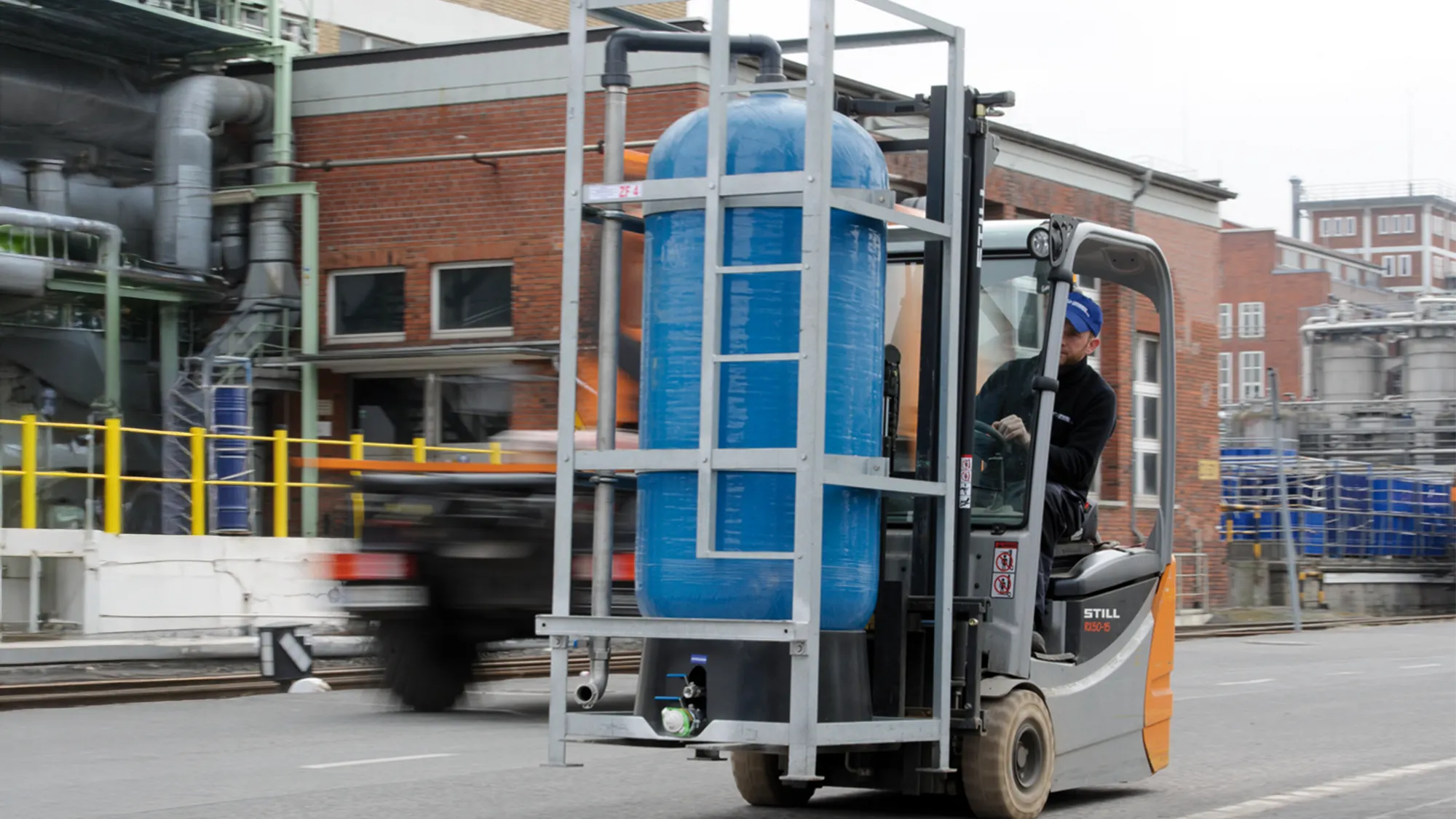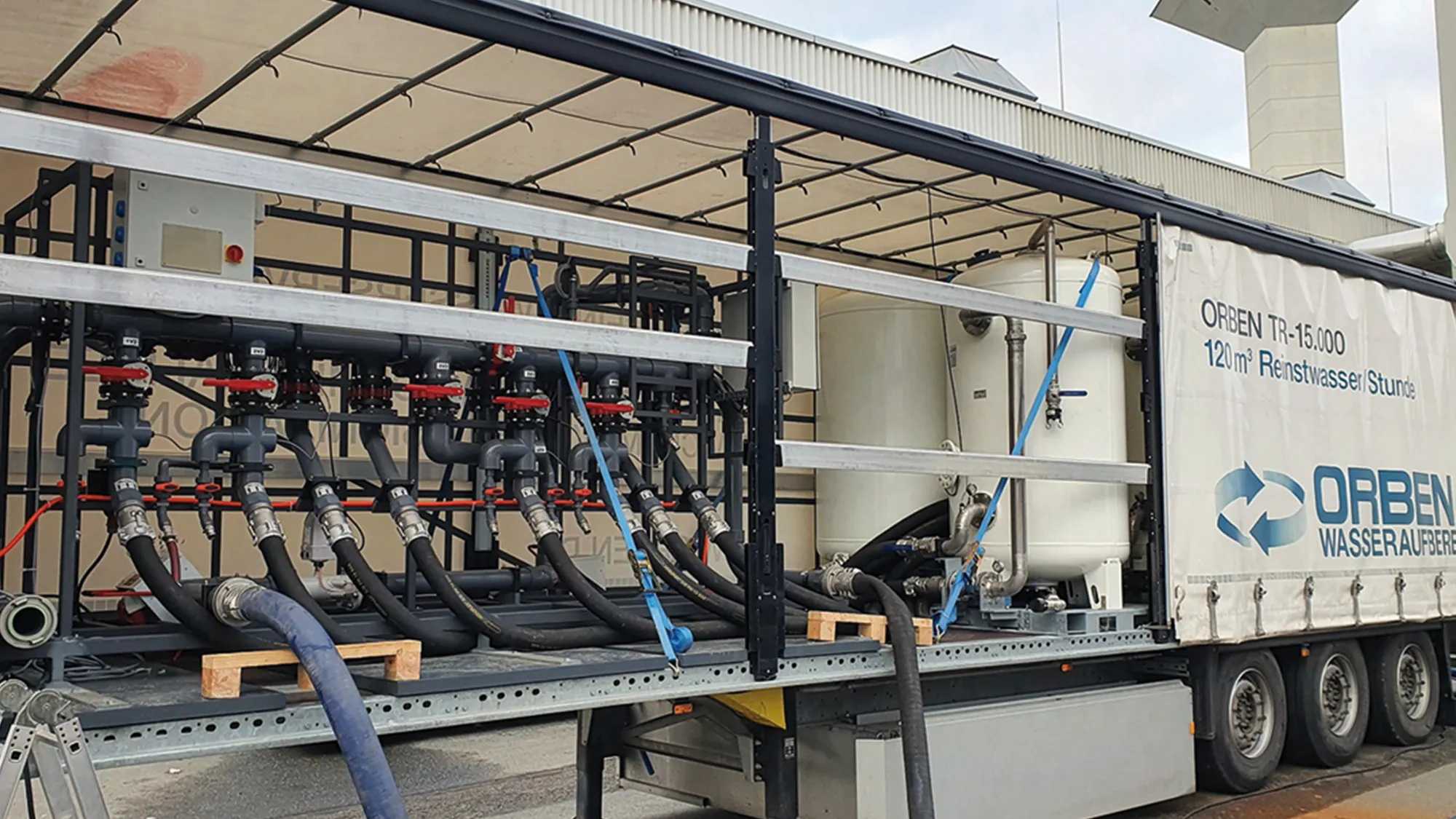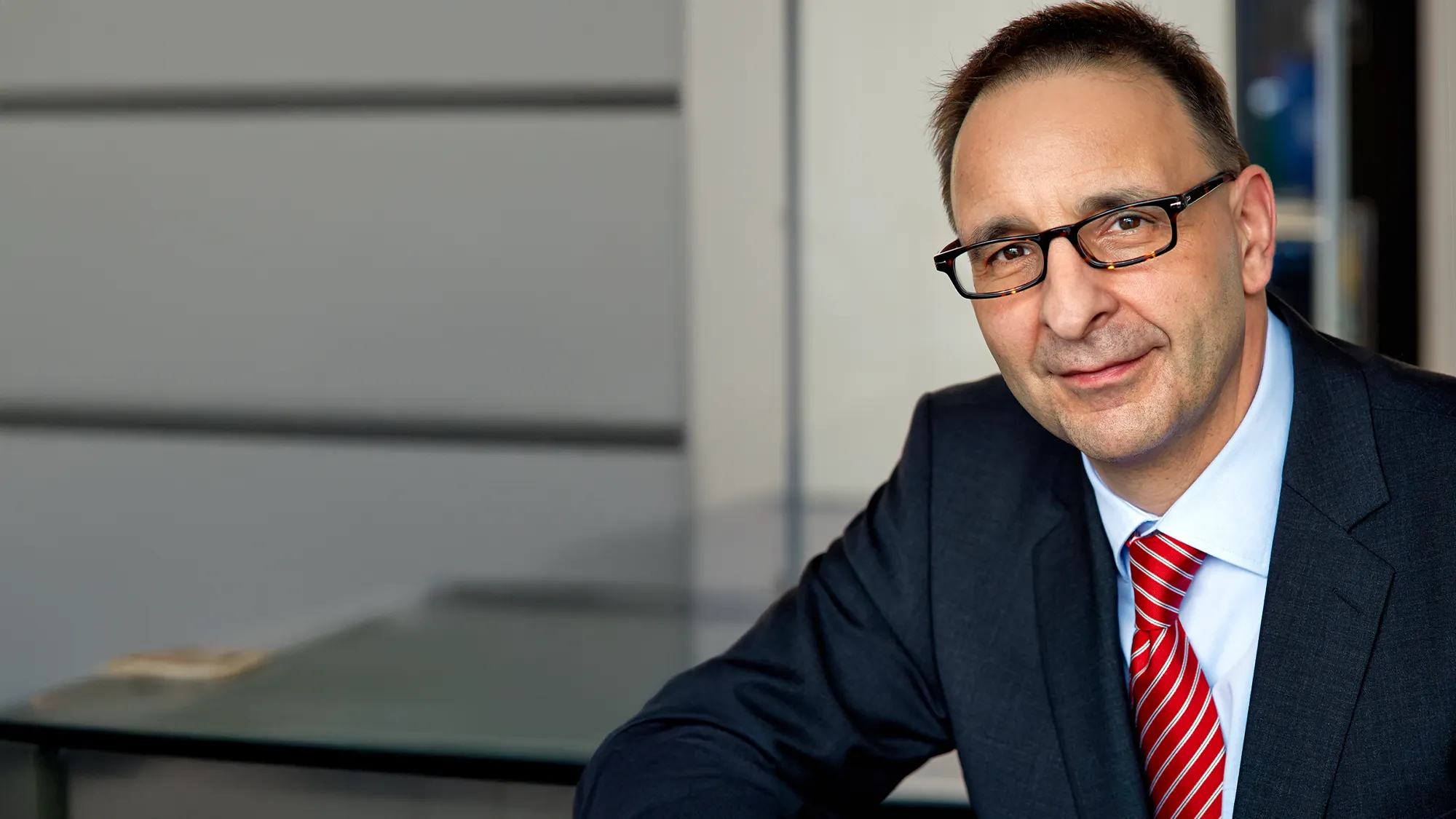
Frankfurt Airport is growing. It is already clear how large the new Terminal 3 will be on the former US airbase in the southern area of the huge area. Above all, the new Gate G, which is due to be operational as early as the end of 2021. To keep passengers pleasantly warm in the future, the shell has already been connected to the district heating network of energy supplier Mainova. The water treatment specialists from ORBEN provided the right filling water.
In mid-December 2020, experts from Orben Wasseraufbereitung GmbH got the go-ahead: Within 14 days, the new district heating pipeline, which connects the new gate G with the South boiler house, was to be filled. “The circulating water must meet the strict requirements of the AGFW Directive FW 510,” explains Guido Rothe, authorized signatory and head of sales at Orben. The available tap water on the airport site had a conductivity of over 300 μS and had to be reduced to a value below 30 μS for use. “In addition,” says Rothe, “there was still residual dirt from the building in the pipes, which had to be filtered out. ”

The new district heating pipeline connects the new gate G to Heizwerk 3 in the middle of Cargo City Süd, around two and a half kilometers away. Most of the plastic jacket pipeline made of DN-400 pipes runs across the construction site of Terminal 3, but partly also across the airport apron and the transport infrastructure of Cargo City Süd. To feed in the circulating water, the Wiesbaden specialists went directly to the connection point at heating plant 3 and set up the necessary equipment there. Rothe: “With our TR 15000 special trailer, we were able to reduce the available tap water to low conductivity even as it was being fed in. In order to reach the required limits, we then extracted the residual particles larger than 1 μm using partial flow and fine filtration and reduced the conductivity of the water to less than 10 μS. ”
The tap water, which was made available at heating plant 3, had the usual mineral components, which are also present in normal drinking water. However, in order to use the water for use in district heating pipes, it must first be freed from almost all foreign substances. The reason for this is obvious: The salts and ions (e.g. calcium) dissolved in water attach to metallic elements of district heating pipes and thus cause corrosion, commonly known as rust or boiler stone. If corrosion progresses unchecked, leaks can occur. In the best case, only the circulating water escapes. In the worst case, larger rust particles come off and clog units, valves or even the turbines in power plants.

There are various methods for extracting minerals from water before it is fed into a district heating circuit. For projects of the scale of filling at Frankfurt Terminal 3, Orben Wasseraufbereitung relies on its flagship mobile ion exchanger, the TR 15000 semi-trailer, which is equipped with up to eight mixed beds through which the water is passed. The mixed-bed filters contain special resins, so-called ion exchangers, which are used to remove the alkaline earth cations calcium and magnesium and all other ionic water constituents. Rothe: “Alternatively, other trailers from our fleet, which also have a reverse osmosis plant and membrane degassing system on board, could have been used to filter solids and other particles out of the water, but here the decision was made in favour of the TR 15000 mixed-bed trailer.” This fully equipped special trailer can produce up to 120,000 liters of ultrapure water — per hour.
Once the special resins have reached their degree of saturation after initial filling, the mixing beds can simply be replaced. In Wiesbaden, the resins can be refreshed again in a special process and thus reused almost as often as you like.
In order to quickly lower the circulating water to the desired requirement parameters of less than 10 µS/cm in the next step, Orben used the proven JumboStil large mixbed filters for circulating water treatment. These full desalination units with high hydraulic load capacity (up to 20 m3/h at 8 bar pressure and a maximum temperature of 80°C) enable extremely fast and effective cleaning within a very short period of time. Rothe: “We have opted for the partial flow desalination process here so that we can reliably meet the requirements set for us in accordance with current guidelines. ”
ORBEN is the water specialist with a three-stage distribution channel. The water, heating water and circulating water experts offer a complete range of products, services and services for the initial filling or replenishment of heating systems in accordance with VDI 2035/EN 1686 in home and building technology as well as district and local heating networks in accordance with AGFW 510. From mobile and permanently installed products for heating water treatment including inon exchange resins to solutions for replenishment and services for small ORBEN offers large plants and accessories through a comprehensive network of experienced industrial and Trade agencies reliable solutions for heating water in single-family homes to cooling pools in nuclear plants or production water in complete power plants.

The ORBEN trailer service offers you mobile water treatment solutions directly on site. Whether on construction sites, at events or in emergencies — we are there where you need us, with the usual ORBEN quality.
Request serviceOur all-round service ensures the smooth operation of your systems. In addition, we offer flexible rental solutions to cover temporary needs and keep your systems in top shape over the long term.
Explore maintenance optionsWe are available to answer any questions you may have and help you with your projects. Get in touch with us — we'd love to hear from you.
